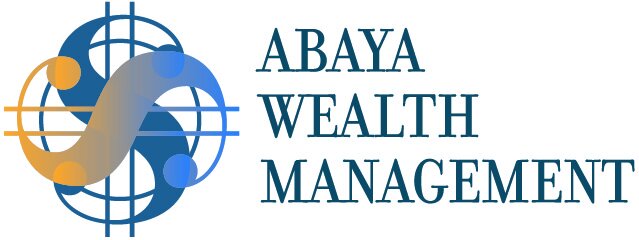Coming Home from Schwab IMPACT: Money Is Never Just Math
I spent the week at Schwab’s IMPACT 2025, and it reaffirmed everything I care about in this work. In this post I share a few ideas I’m bringing home from the speakers who stood out.
Here’s the heart of it: Abaya Wealth Management is built on the belief that wealth includes health—financial, social, mental, and physical. Money is the engine, not the destination. This week didn’t change that; it confirmed it and gave me even better tools to deliver on it.
When You’re Caring for Everyone — Include Yourself
For many women in their late 40s through early 60s, these years feel like walking a narrow path: supporting parents through health changes, guiding young adults toward independence, and somehow trying to hold on to their own goals. It’s a lot — and yet, most of the women I meet are doing it with extraordinary grace.
Here’s what I remind my clients: Security isn’t the finish line. It’s the foundation that lets you build a joyful next chapter.
Redefining Retirement: Planning Your Next Great Adventure
Lately, I’ve been having the same kind of conversation with so many clients—and it always starts with this realization: retirement isn’t what it used to be.
It’s not about stepping back anymore; it’s about stepping into something new. A second act. A new chapter. A chance to do the things that light you up.
How the 2025 Certified Board Connections Conference Inspired Me to Keep Raising the Bar for My Clients
As a financial advisor, one of my favorite things is getting to step out of my day-to-day routine and dive headfirst into new learning experiences—especially those that help me serve my clients even better. That’s exactly what happened at the Certified Board Connections Conference 2025. I left the event more energized than ever to keep researching, learning, and implementing the best practices and investments I can find.
Financial Planning Month: How to Make a Holiday Spending Plan You’ll Actually Enjoy
Did you know October is Financial Planning Month? It’s the perfect time to think ahead—especially with the holidays coming up fast! Instead of feeling overwhelmed or stressed, you can create a simple plan to make your season more joyful and less expensive. In this blog post I list my favorite steps to help you get started.
Saying Yes to What Matters
A guiding principle in my life, and in my work at Abaya Wealth Management, is the belief that investing in yourself is one of the best decisions you can make. When you do, you open doors—to choices, opportunities, and experiences that bring real joy.
I am living proof of that. Investing in myself over the years has given me the ability to provide for my children and myself, yes—but it has also given me the freedom to say “yes” when opportunities come my way.
Your Retirement Healthcare Budget—How Much Should You Really Plan to Spend?
Estimating healthcare expenses is not an exact science, but taking a thoughtful, realistic approach can give you clarity and peace of mind. It’s one of the best gifts you can give yourself—and your loved ones—as you look forward to a secure, healthy retirement.
Planning for Long-Term Care—Why It Matters and How to Prepare
Most of us hope to age gracefully, staying healthy and independent.
But here’s the reality: nearly 70% of people turning 65 will need long-term care at some point. For women, the odds are even higher.
And yet—long-term care is one of the least planned-for parts of retirement.
Lately, I’ve had more and more conversations with friends, clients, and even my own family about parents who suddenly need more help than anyone expected. These talks are hard. They touch on independence, dignity, and finances—all at once.
But here’s the thing: waiting makes it harder. Starting the conversation now makes it easier.
Celebrating 80 years of love + legacy
On September 6th, my mom, Ann, turns 80 years old. It’s a milestone that has me reflecting not only on her incredible life, but also on the quiet ways women shape our world for the better—often without fanfare or spotlight.
The HSA Advantage—How to Use Health Savings Accounts for Tax-Free Healthcare in Retirement
An HSA is a personal savings account just for healthcare costs. You can only contribute if you have a high-deductible health plan (HDHP), but the money is yours—even if you change jobs, retire, or switch insurance.
Why are HSAs so powerful? They offer a triple tax advantage:
Contributions are tax-deductible.
Money grows tax-free.
Withdrawals are tax-free if used for qualified medical expenses.
Do You Need Medigap? How to Choose the Right Supplemental Insurance for Retirement
Even with Medicare, healthcare costs can catch many retirees by surprise. That’s why understanding Medigap—also known as Medicare Supplement Insurance—is so important.
Medigap is private insurance that helps pay for healthcare costs not covered by Original Medicare (Parts A & B), such as copayments, coinsurance, and deductibles. It’s designed to “fill the gaps” in your Medicare coverage, so you’re not left footing big bills when you need care most.
5 Must-Know Social Security Changes in 2025 (and How to Stay Ahead of Them)
Social Security is a cornerstone of retirement planning, and the rules are always evolving. The best way to avoid unwelcome surprises is to stay informed and revisit your claiming strategy regularly. Review your online statements, consider your work and income plans, and talk to a financial advisor if you want help weighing your options.
How to Rethink Investing Risk When You’re in Your 50s
Risk Isn’t a Four-Letter Word
Taking smart risk, guided by a real plan, isn’t reckless. It’s a way to build your future with confidence. When you’re clear on your goals and supported by a trusted advisor, you don’t have to fear the unknown.
Investing with Confidence: A Guide for Women
Many women are natural savers and budgeters, but when it comes to investing, it’s common to feel unsure or even intimidated. If this sounds familiar, you’re not alone.
But here’s the good news: you don’t have to be an expert to become a confident investor. This guide will break down the basics, tackle common fears, and give you simple steps to help you take control of your financial future.
Navigating Divorce or Widowhood: A Woman’s Guide to Rebuilding Your Financial Life
When a marriage ends—whether through divorce or the loss of a spouse—the emotional toll is hard enough. Yet the financial fallout can feel just as overwhelming, especially if you weren’t the primary decision-maker.
The good news? With clear steps and the right support, you can move from “financial shock” to a place of security and confidence.
Scammers Love Dressing Up as the Government—Don’t Be Fooled
Scam alerts don’t discriminate—whether it’s the text my 22-year-old son got about an “unpaid ticket from 3 years ago” or the voicemail my 80-year-old aunt received threatening “unpaid fees,” the anxiety hits just the same.
Fraudsters know how to press our panic buttons, hoping we’ll act before we think. The antidote is simple: keep the conversation going. The more we share stories, compare screenshots, and swap “does this look legit?” moments, the harder it becomes for scammers to catch us off-guard.
Consider this blog your next talking point; read on, pass it along, and let’s make staying scam-savvy a family habit.
Tech Support Scam Warning Signs and How to Stay Safe Online
Cyber-crooks routinely play on our fear of viruses and hackers to swipe money or personal information. Many bad actors masqueradeas household names—Apple, Microsoft, Amazon—or as trusted security brands like Norton or McAfee. The logos change, but the con remains the same.
This scam typically starts when you respond to an unsolicited phone call or pop-up warning on your device. The scammer will ask for remote access to your computer to run a phony test, which pretends to detect malware or viruses. After using this to scare you, they pressure you to pay for “repairs,” new software, and other products and services you don’t need.
Sweetheart Scams: How romance can turn into financial risk for Seniors
Sadly, elder abuse—including financial exploitation—continues to impact far too many individuals in our communities. One particularly insidious form is scams, which often target older adults through phone calls, emails, or online messages.
With advances in artificial intelligence, voice impersonation scams are becoming more common—and more convincing. These scams don’t just target older adults, but our senior population is especially vulnerable due to the emotional nature of the approach.
How to Review & Adjust Your Financial Plan for Continued Growth
At Abaya Wealth Management, I believe your financial plan should grow with you—not just keep up, but truly evolve to reflect your life, your values, and your vision. And just like we go in for routine check-ups to stay healthy, your financial plan needs regular reviews to stay aligned with your goals.
If you’re in your 40s, 50s, or early 60s and preparing for or embracing an empty nest, now is the perfect time to pause and take stock. Because the decisions you make today will shape your freedom, flexibility, and legacy for decades to come.



















